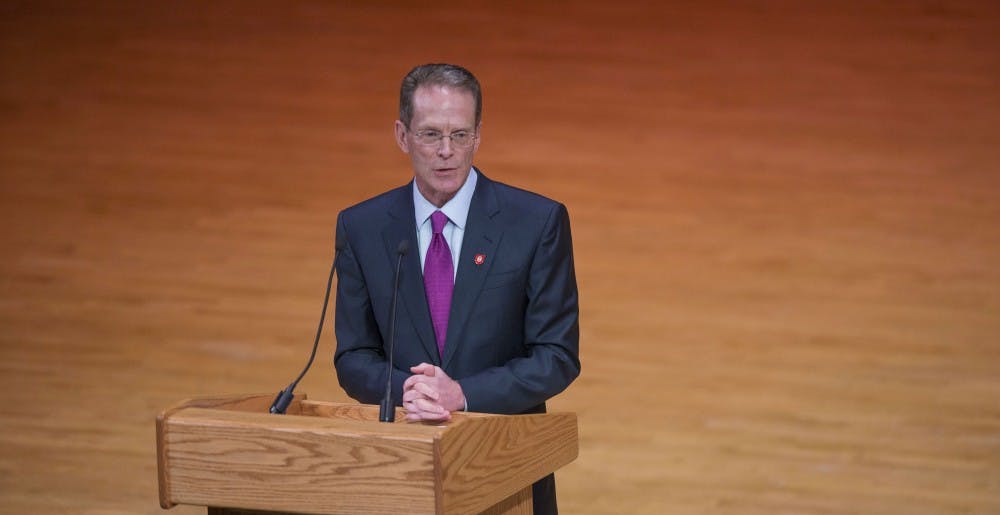The job pays well, but there are conditions.
Ball State's incoming president, Geoffrey S. Mearns, will be making in the range of half a million dollars. But according to his contract, he'll have to meet new criteria laid out by the Board of Trustees.
Mearns' agreement includes more details than the last president's agreement regarding fundraising, citing personal relationships with alumni, donors and potential donors as "a critical aspect of the President's duties."
According to his contract, Mearns is expected to be a guest in the homes of alumni, donors and potential donors, and he'll also be required to participate in social and recreational activities.
"The board believes that such relationships are critical to the University's fundraising, development, and alumni relations effort and expects the President to participate in such activities," according to Mearns' employment agreement.
The president will also be required to "communicate regularly" with the board regarding the "status and progress of [those] duties."
According to a separate $105,000 transition contract made between Ball State and Frank Associates — a consultant specializing in leadership changes at universities — Mearns will have a "100-day plan" put into place to assist with his onboarding process. During those 100 days, the contract states that Mearns will have assistance identifying his needs and resources, and his transition team will help implement and monitor a "game plan" for his first three months as president.
RELATED: Ball State's new president strikes contrast with past
Every 12 months, the president and the board will hold meetings to develop and articulate goals for the following year. Initially, according to the contract, goals may include the president's "full cooperation and participation" in the onboarding plan and performance management plan.
"Different people have different perspectives — students are going to have different perspectives, faculty, staff and alumni are going to have different perspectives — that's part of this job," Mearns said. "There is a lot of accountability with that ... and my transition [to Ball State] will be carefully planned."
He has an annual base salary of $450,000 — which is $100,000 more than his base salary at Northern Kentucky University — and under the terms of his contract, an annual performance bonus could also be included. If the goals he and the board set are achieved during the 12-month period, he would be eligible for a performance bonus.
The contract does not specify the size of that bonus, but Mearns was eligible for a $25,000 annual bonus while serving as president at NKU, according to his contract with the Kentucky university.
The contract also includes a provision, requested by Mearns, that he will contribute 50 percent of any bonus he receives to the Ball State University Foundation. The contract does not specify which fund the money will go towards.
Although former president Paul W. Ferguson's contract stated that he could receive a cash bonus or contribution to his retirement plan, no dates or timelines were listed for review or consideration for that bonus.
During Mearns' time in office, his base salary will also be reviewed annually and can only be increased.
At the end of the president's term, the board has also agreed to offer a tenured faculty appointment for Mearns in an academic department "appropriate to his educational background and professional expertise." If he accepts, Mearns will then work as a professor with a full course load per semester.
University spokeswoman Joan Todd confirmed that Ferguson's contract did not include such an agreement.
In that tenured position, Mearns' first-year salary would be equal to the highest salary existing for full-time tenured faculty in the department he is appointed to. Mearns has a law degree and previously taught law at Cleveland State University.





